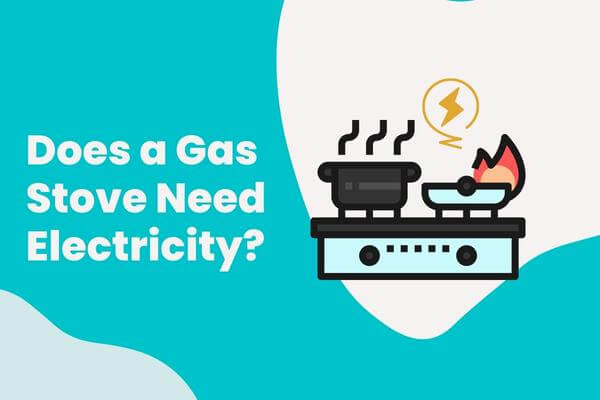Gas stoves have been a staple in kitchens for generations, providing a reliable and efficient way to cook meals. But one common question is whether a gas stove requires electricity to function. While it may seem like an obvious answer, the truth is that it depends on the type of gas stove being used.
Let us explore the different types of gas stoves available and examine the role of electricity in their operation. Whether a seasoned chef or a novice cook, understanding the basics of gas stoves is essential in making an informed decision about your kitchen appliances.
Do Gas Stoves Need Electricity?

Gas stoves do not inherently require electricity to operate. Most gas stoves rely on a pilot light to ignite the gas when a burner is turned on. This means that even during a power outage, a gas stove can still be used to cook food.
However, some gas stoves have electronic ignition systems that require electricity to start the flame. These ignition systems use a spark to ignite the gas, which can be more convenient and safer than a pilot light. Additionally, some gas stoves may have specialized features, such as digital displays or timers, that require electricity to function properly.
It is worth noting that even in cases where a gas stove has electronic ignition or other specialized features, electricity is not needed for the stove to produce heat. If the power goes out, the stove can still be used manually, lighting the burner with a match or lighter.
How Do Gas Stoves Work Without Electricity?
Gas stoves use a simple but effective mechanism to produce heat. When a burner is turned on, gas flows from the supply line to the burner. The gas is then ignited by either a pilot light or an electronic ignition system, producing a flame that heats the burner. The heat from the burner is then transferred to the cookware, allowing food to be cooked.
In the case of a power outage or if the electronic ignition system is not working, a gas stove can be manually ignited using a match or lighter. To do this, the burner is turned on, and the match or lighter is held close to the burner until the gas ignites. Once the flame is established, the match or lighter can be removed.
It is important to note that when manually igniting a gas stove, it is important to use caution and follow the manufacturer’s instructions to avoid any potential safety hazards.
Advantages of Using a Gas Stove that Does Not Require Electricity
There are several benefits to using a gas stove that does not rely on electricity:
- Ability to continue functioning during power outages: Gas stoves that rely on pilot lights rather than electronic ignition systems can continue to be used during power outages. This is particularly important for those who live in areas prone to blackouts or rely on unreliable sources of electricity.
- Faster cooking time: Gas stoves heat up faster than electric stoves and provide more precise heat control. This can result in faster cooking times and more evenly cooked food.
- Lower cost of operation: Gas stoves are generally less expensive to operate than electric stoves, especially if you have access to natural gas. This can result in significant cost savings over time.
- Better for the environment: Gas stoves produce fewer greenhouse gas emissions than electric stoves, particularly if you have access to natural gas.
Overall, a gas stove that does not rely on electricity can provide many benefits, making it a great choice for those who value speed, efficiency, and reliability in the kitchen.
Bottom Line
Gas stoves are popular in modern kitchens due to their speed, efficiency, and precise heat control. Despite common misconceptions, gas stoves do not typically require electricity to function. While some gas stoves have electronic ignition systems or other specialized features that require electricity, the heat produced by the stove can still be used even during a power outage by manually lighting the burner with a match or lighter.
Gas stoves that rely on pilot lights can be particularly useful during power outages or for those who rely on electricity from unreliable sources. Gas stoves offer several other advantages, such as faster cooking times, lower operating costs, and reduced greenhouse gas emissions. Overall, gas stoves that don’t require electricity are a great choice for those who value speed, efficiency, and reliability in the kitchen.






